Second Annual Ramadan Delights
On April 2, 2024, FAS Jakarta held its second annual Ramadan iftar event at the U.S. Embassy’s @america cultural center. This year’s event, “Ramadan Delights with U.S. Products: featuring the Talents of Chef Vindex and a Conversation with U.S. Halal Certifying Bodies,” promoted high-quality U.S. food ingredients such as beef, cheese, dates, chickpeas, raisins, and seafood. These ingredients were integrated into local dishes traditionally served during Ramadan.
US Embassy Jakarta Holds Second Annual Ramadan Delights Event
ID2024-0014
On April 2, 2024, FAS Jakarta held its second annual Ramadan iftar event at the U.S. Embassy’s @america cultural center. This year’s event, “Ramadan Delights with U.S. Products: featuring the Talents of Chef Vindex and a Conversation with U.S. Halal Certifying Bodies,” promoted high-quality U.S. food ingredients such as beef, cheese, dates, chickpeas, raisins, and seafood. These ingredients were integrated into local dishes traditionally served during Ramadan. This event also highlighted the diversity of the Muslim community in the United States and bolstered the confidence and trust of Indonesian consumers in the recently accredited U.S. halal certifying bodies issuing halal certificates for U.S. products exported to Indonesia. Halal certification will be mandatory in Indonesia for most food and beverages starting October 17, 2024.
Food Ingredients Asia
This is a USDA endorsed event Food Ingredients Asia provides the opportunity to network with more than 18,000 visitors from 56 countries, including Thailand, Malaysia, Singapore, Indonesia, China, the Philippines and more! Fi Asia is Southeast Asia’s top food and beverage ingredients event, and alternates annually between Bangkok, Thailand, and Jakarta, Indonesia. Best market prospects […]
Food & Hospitality Indonesia
The 18th Indonesia International Leading Hospitality, Food & Beverage Trade Exhibition This event evolved from “Food & Hotel Indonesia” that has a legacy spanning over 29 years. The 18th edition of this event is titled “Food & Hospitality Indonesia”, promising more impactful experience for industry enthusiasts. It provides a unique gateway for international companies to […]
Food Processing Ingredients Annual
ID2024-0012
Indonesia offers significant opportunities for U.S. ingredient suppliers to meet the demand for raw materials for its food processing industry. The United States is the third largest agricultural supplier to Indonesia, with an 11-percent market share. Soybeans and dairy products made up about half of all U.S. agricultural products shipped to Indonesia in 2023. Other top U.S. agricultural product exports to Indonesia in 2023 included feeds and fodders, cotton, corn, wheat, fresh fruits, and beef and beef products. Halal certification will become mandatory for many foods/ingredients/additives and for all processed food products starting on October 17, 2024.
Cotton and Products Annual
ID2024-0011
The global economic slowdown and illegal imports of cheaper textile products continue to hinder the growth of the Indonesian textile and textile products industry in 2023/24. To assist the struggling sector, the Government of Indonesia (GOI) is implementing new textile import restrictions that also limit the number of certain items in the luggage content of travelers. The enforcement of the regulation is expected to improve spinning mill utilization and increase 2023/24 cotton consumption.
Grain and Feed Annual
ID2024-0010
The Red Sea conflict is not expected to pose significant threats to Indonesian grain imports. Driven by demand from the recent general elections, as well as high local corn prices, imports of wheat for food and feed consumption are estimated to increase for 2023/24. Post-election demand for wheat and rice are forecast to be corrected in 2024/25.
ASEAN Collaborates with USDA to Hold Agricultural Biotechnology Workshop
ID2024-0006
From March 4-6, 2024, 26 representatives from all ten member states of the Association of Southeast Asian Nations (ASEAN) and Timor-Leste participated in a USDA-funded agricultural biotechnology workshop – along with dozens of private sector stakeholders at the ASEAN Secretariat in Jakarta, Indonesia. Representatives from each member state presented on regulations and research updates in their countries, and engaged in substantive conversations on balancing the need to assure the food safety of genetically engineered products with the need to innovate and meet increasing food security challenges. Day 2 of the workshop consisted of a field trip to an Indonesian potato farm growing GE blight resistant potatoes and the University of Padjadjaran which is developing GE catfish.
Indonesia Accredits Five US Halal Certifying Bodies
ID2024-0005
On March 1, the Government of Indonesia’s Halal Product Assurance Agency (BPJPH) listed five U.S. halal certifying bodies (HCBs) on its website as fully accredited to issue halal certificates for U.S. products destined for the Indonesian market. The accreditation of these five HCBs is vital to providing U.S. suppliers with as many halal certification service providers as possible before enforcement of Indonesia’s mandatory halal certification law for most food and beverage products begins on October 17, 2024. U.S. producers seeking to send halal-eligible products to Indonesia should apply for halal certification either directly with the Indonesian government or through an accredited U.S. HCB. Mandatory halal certification does not apply to non-eligible products (i.e., haram/forbidden products such as those containing pork, alcohol, and other forbidden ingredients).
Oilseeds and Products Annual
ID2024-0004
Indonesia palm oil production is forecast to rise marginally to 47 million metric tons (MMT) in 2024/25 on expected recovery from extreme weather in 2023. The mandatory biodiesel program continues to absorb significant domestic palm oil consumption, limiting exportable volumes. Feed industry growth pushed soybean meal use up to 5.8 MMT in 2024/25.

